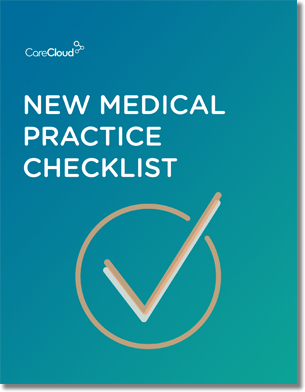There’s a new sheriff in town. Gone is the famous bowtie of Farzad Mostashari (we hope its Twitter account sticks around for a little longer), and in steps Karen DeSalvo, MD, as the new head of the Office of the National Coordinator for Health IT (ONC).
When Mostashari stepped down last September, all anyone could do was speculate about his successor and cite the challenges awaiting her/him. But now that we know DeSalvo takes over on Monday, January 13, it’s time to predict what type of impact she’ll have on the healthcare industry during her tenure.
Accessibility Will Be Huge
Kathleen Sebelius’ press release announcing DeSalvo’s appointment lauded her efforts on accessibility. Her past efforts may point to a future push toward technologies like patient portals and telehealth devices, which can make physician access easier for certain patient populations.
DeSalvo most recently cut her teeth serving as the City of New Orleans Health Commissioner and Senior Health Policy Advisor to Mayor Mitch Landrieu, where she gained a unique perspective on healthcare accessibility for a community still trying to recover from Hurricane Katrina.
In response, DeSalvo helped implement the Greater New Orleans Community Health Connection Program to help residents obtain Medicaid waivers and access to primary care physicians. She even founded 504HealthNet, a consortium of safety net providers focusing on low-income uninsured populations.
Sustainability of Regional Extension Centers
During her time as health commissioner of New Orleans, she also served as the President of the Louisiana Health Care Quality Forum (LHCQF), which made her the state’s head for pursuing regional extension center (REC) grants. Her expertise on RECs elicited praise from HIMSS’ executive vice president, Carla Smith.
RECs have proven conducive to the widespread adoption of EHRs. As of July 2013, over 147,000 providers were enrolled with a REC. And 85% of these providers are live on an EHR, which can only be said for 62% of the general provider population.
Yet, some doubt the sustainability of the RECs, citing a lack of funding for the program. Fortunately, DeSalvo’s familiarity with RECs means they have a better chance of receiving the funding necessary to continue helping small practices implement health information technology in the future.
Interoperability Emphasized
DeSalvos’ past duties and actions also hint that the ONC’s emphasis on health IT software interoperability will only increase under her watch.
As president of the LHCQF, she was also in charge of leading health information exchange efforts in Louisiana. Additionally, DeSalvo led projects in New Orleans that utilized health IT to create more effective medical homes for patients in the city.
Both endeavors rely on seamless software interoperability so providers can transfer patient information to each other without delays that hurt the quality of care. Working in such an environment, DeSalvo knows the potential and the current shortcomings of software interoperability and will likely work harder to make it a reality.
As the new head of the ONC, DeSalvo holds the future of health information technology in her hands. New challenges like Meaningful Use Stages 2 and 3, the effects of the Affordable Care Act, and the battle to fight rising healthcare costs are all on the horizon. Thankfully, she has experience in vital areas that should translate to a successful tenure in her new position.
Want to receive more insights on the latest in healthcare news? Sign up for the Power Your Practice email list below.

Do you know what you need when setting up a new medical practice?



